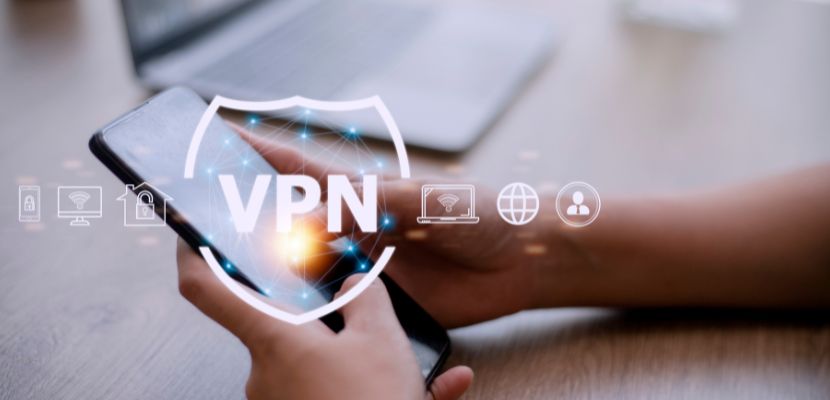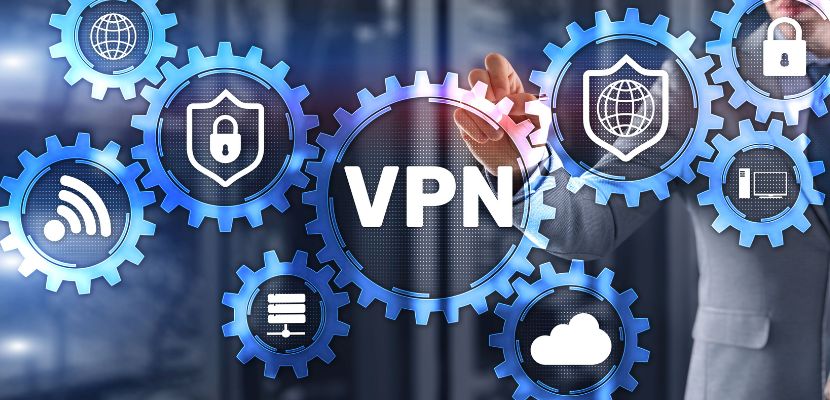A VPN server is a specialized server that enables secure, encrypted connections between users and a private network over the internet.

What Is a VPN Server and How Does it Work?
A VPN server is a networked system that facilitates secure, encrypted communication between a client device and a private network over the internet. It acts as an intermediary, routing traffic through an encrypted tunnel to conceal the user’s IP address and protect data from interception.
By authenticating users and encrypting their connections, a VPN server ensures privacy, security, and anonymity online. It can be deployed on-premises or in the cloud and typically supports various tunneling protocols, such as OpenVPN, WireGuard, and IPSec, to balance security, performance, and compatibility.
Businesses use VPN servers to enable remote employees to securely access internal resources, while individuals rely on them to bypass geo-restrictions, protect sensitive data, and maintain anonymity from ISPs, advertisers, or malicious actors.
The server may assign dynamic or static IP addresses to connected clients and often integrates additional security measures like multi-factor authentication, logging policies, and firewall rules to enhance protection against cyber threats.
What Is a VPN Server Used For?
A VPN server is used to establish a secure, encrypted connection between a user’s device and a private network over the internet. Its primary function is to enhance privacy, security, and accessibility by routing traffic through an encrypted tunnel, shielding data from interception by hackers, ISPs, or government surveillance.
Businesses deploy VPN servers to provide employees with secure remote access to internal systems and sensitive data, reducing the risk of unauthorized access. Individuals use VPN servers to mask their IP addresses, bypass geo-restrictions, and access content unavailable in their region. Additionally, VPN servers help prevent bandwidth throttling by ISPs, protect online activities on public Wi-Fi networks, and enable anonymous browsing by obscuring a user's real location.
What Are the Benefits of Using a VPN Server?
A VPN server enhances online security, privacy, and accessibility by encrypting internet traffic and masking the user's IP address. Whether for personal use or business operations, it provides multiple advantages that improve digital safety and freedom. Here are the advantages of a VPN server, explained:
- Enhanced security. Encrypts data to protect it from hackers, ISPs, and government surveillance, especially on public Wi-Fi networks.
- Online privacy. Conceals the user’s IP address and browsing activity, preventing tracking by websites, advertisers, and third parties.
- Remote access. Allows employees to securely connect to corporate networks from anywhere, ensuring safe access to sensitive information.
- Bypassing geo-restrictions. Enables access to region-locked content by routing traffic through servers in different locations.
- Prevention of bandwidth throttling. Stops ISPs from slowing down internet speeds based on usage patterns, ensuring consistent performance.
- Secure file sharing. Provides a safe way to transfer sensitive data between users or offices without exposure to external threats.
What Are the Limitations of a VPN Server?
While a VPN server enhances security, privacy, and accessibility, it also has certain limitations that users should consider before relying on it for online protection:
- Reduced connection speeds. Encryption and rerouting traffic through a VPN server can introduce latency, slowing down internet speeds, especially on distant or overcrowded servers.
- Not a complete anonymity solution. While VPNs mask IP addresses, websites can still track users through cookies, browser fingerprinting, or other tracking methods.
- Blocked by some services. Streaming platforms, financial institutions, and some websites actively detect and block VPN traffic, limiting access despite using a VPN.
- Potential security risks. Free or poorly managed VPN services may log user data, expose traffic to vulnerabilities, or fail to provide strong encryption.
- Legal and policy restrictions. Some countries restrict or ban VPN usage, making it illegal or requiring government-approved services that compromise privacy.
- Limited protection against malware. A VPN does not replace antivirus software or firewalls, meaning users are still vulnerable to malware, phishing, and cyber attacks.
How to Choose a VPN Server?

Selecting the right VPN server depends on factors like security, speed, location, and intended use. A well-chosen VPN server enhances privacy, ensures fast connections, and provides reliable access to restricted content. Here is how to choose a VPN server:
- Server location. Choose a server in a region that suits your needs, whether for bypassing geo-restrictions, optimizing speed, or maintaining privacy under favorable data laws.
- Security protocols. Look for servers supporting strong encryption standards like OpenVPN, WireGuard, or IPSec to ensure secure data transmission.
- Speed and performance. Select a server with low latency and minimal congestion, ideally one geographically closer to your location for faster speeds.
- No-log policy. Opt for VPN providers that guarantee no logging of user activity, ensuring maximum privacy.
- Specialized servers. Some VPNs offer optimized servers for activities like streaming, torrenting, or gaming, providing better performance for specific use cases.
- Reliability and uptime. Ensure the server has high uptime and stable connections to prevent frequent disconnects or performance issues.
- Compatibility. Verify that the VPN server supports your operating system and devices, including desktops, mobile phones, and routers.
How Do I Find My VPN Server?
Finding your VPN server depends on how your VPN is configured and whether you're using a commercial VPN service, a corporate VPN, or a self-hosted VPN. Here are the common methods to locate it:
1. Check your VPN application. Most VPN clients display the active server name, IP address, and location within the app’s dashboard or connection status section.
2. Use an IP lookup tool. After connecting to your VPN, visit an IP checker website (e.g., WhatIsMyIP) to see the IP address and location of your VPN server.
3. Review VPN configuration files. If using a manual VPN setup, check your configuration files (.ovpn, .conf, or similar) for the server address specified in the settings.
4. Check router or network settings. If connected via a VPN-enabled router, log into your router’s admin panel and look for VPN settings, where the server information may be listed.
5. Contact your VPN provider or IT admin. If using a corporate or managed VPN, your IT team or VPN provider can provide the specific server details you’re connected to.
VPN Server FAQ
Here are the answers to the most commonly asked questions about VPN servers.
Can I Make My Router a VPN Server?
Yes, you can turn your router into a VPN server if it supports VPN functionality or can be flashed with custom firmware like DD-WRT or OpenWRT. This setup allows devices on your network to connect securely to your home network from remote locations, providing encrypted access without needing a separate VPN client on each device.
To configure it, you'll need a router with VPN server capabilities, set up a protocol like OpenVPN or WireGuard, and configure port forwarding on your internet-facing router. However, this may require a static public IP or dynamic DNS service to maintain accessibility, and performance depends on your router’s processing power.
Is a VPN Server Free?
A VPN server can be free, but the availability and quality depend on how it is set up. Some VPN providers offer free servers, but these often come with limitations such as slower speeds, data caps, fewer locations, and weaker security. Free VPN services may also log user activity, inject ads, or sell data to third parties.
Alternatively, you can set up your own VPN server using free software like OpenVPN or WireGuard on a cloud server or home router, but this may involve additional costs for hosting, bandwidth, and maintenance. For reliable security, privacy, and performance, a paid VPN server is usually the better choice.
Are VPN Servers Safe?
VPN servers are generally safe when configured and managed properly, but their security depends on several factors, including the provider, encryption standards, and logging policies. A well-maintained VPN server using strong encryption protocols like OpenVPN or WireGuard ensures secure data transmission, protecting users from hackers, ISPs, and surveillance. However, free or poorly managed VPN services may log user activity, expose traffic to vulnerabilities, or lack essential security features.
Additionally, a VPN does not protect against malware, phishing, or tracking via cookies and browser fingerprinting. Self-hosted VPNs provide greater control over security but require proper configuration to prevent leaks and unauthorized access.